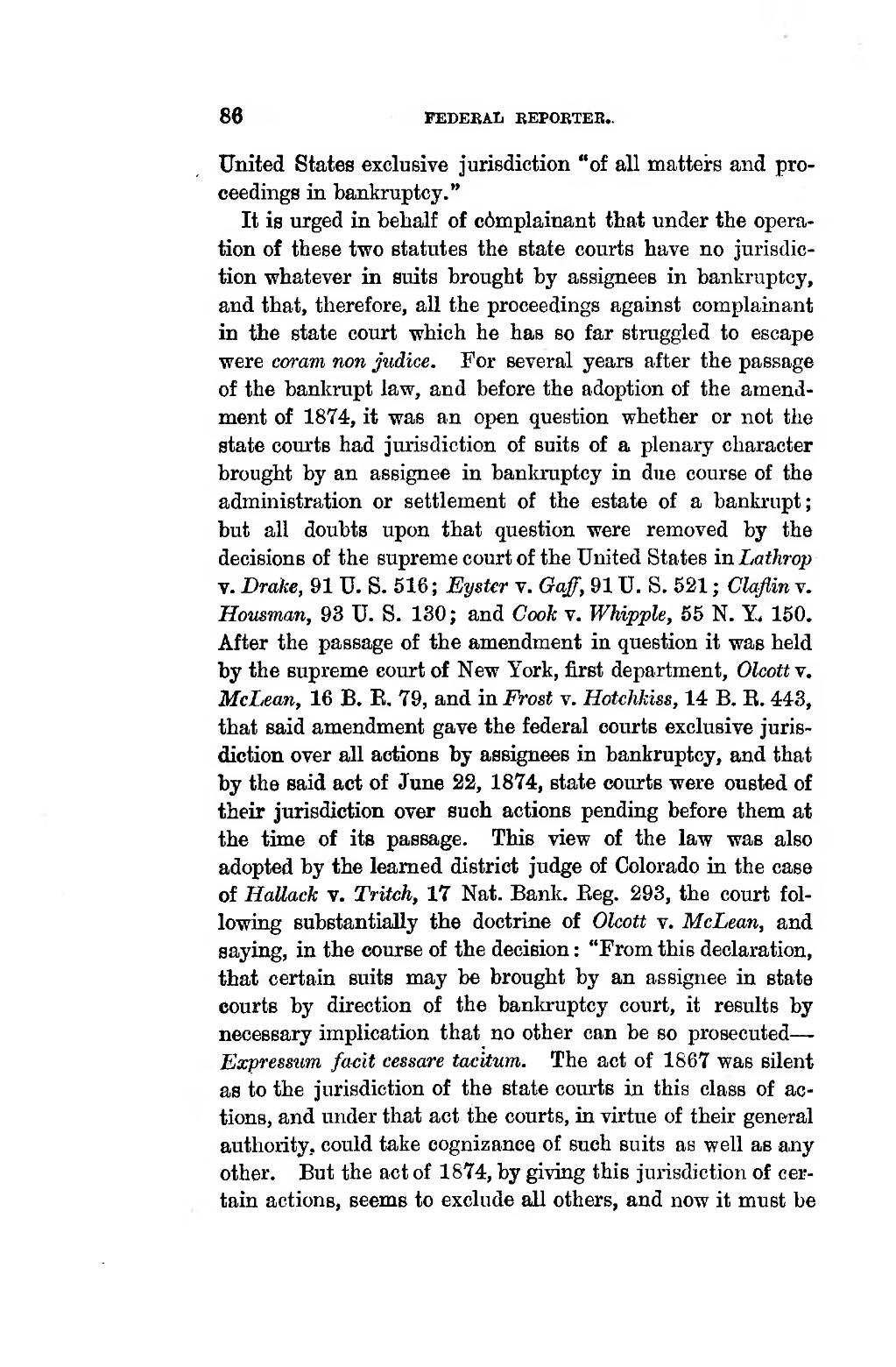86 FEDERAL REPORTER., �United States exclusive jurisdiction "of ail matters and pro- ceedings in bankruptcy." �It is urged in bebalf of cômplainant that under the opera- tion of these two statutes the state courts have no jurisdic- tion whatever in Buits brought by assignees in bankruptcy, and that, therefore, ail the proceedings against cômplainant in the state court which he has so far struggled to escape were coram non judice. For several years after the passage of the bankrupt law, and before the adoption of the amend- ment of 1874, it was an open question whether or not the Btate courts had jurisdiction of suits of a plenary character brought by an assignee in bankruptcy in due course of the administration or settlement of the estate of a bankrupt ; but ail doubts upon that question were removed by the decisions of the supreme court of the United States in Lathrop V. Drake, 91 U. S. 516; Eyster v. Gaff, 91 U. S. 521 ; Claflin v. Housman, 93 U. S. 130; and Cook v. Whipple, 55 N. Y. 150. After the passage of the amendment in question it was held by the supreme court of New York, first department, Olcott v. McLean, 16 B. E. 79, and in Frost v. Hotchkiss, 14 B. E. 443, that said amendment gave the federal courts exclusive juris- diction over ail actions by assignees in bankruptcy, and that by the said aot of June 22, 1874, state courts were ousted of their jurisdiction over such actions pending before them at the time of its passage. This view of the law was also adopted by the learned district judge of Colorado in the case of Hallack v. Tritch, 17 Nat. Bank. Eeg. 293, the court fol- lowing substantially the doctrine of Olcott v. McLean, and Baying, in the course of the decision : "From this declaration, that certain suits may be brought by an assignee in state courts by direction of the bankruptcy court, it results by necessary implication that no other can be so prosecuted — Expressum facit cessare tacitum. The act of 1867 was silent as to the jurisdiction of the state courts in this class of ac- tions, and under that act the courts, in virtue of their general authority, could take cognizance of such suits as well as any other. But the act of 1874, by giving this jurisdiction of cer- tain actions, seems to exclude ail others, and now it must be ����
